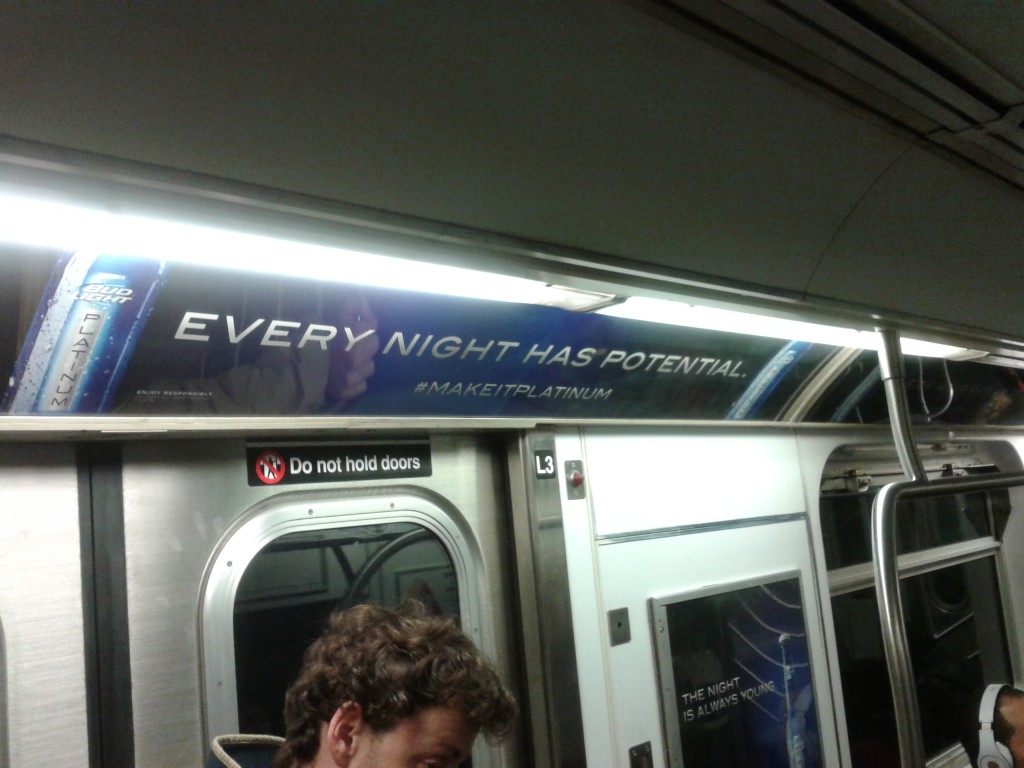
The hashtag #MakeItPlatinum for this Budweiser Ad appears on a New York Subway. Consider how hashtags can appear offline and online to build your brand.
Many students want to study with A students, the ones who do well on the exams. In the world of social media, Facebook and Google view Twitter as the best study buddy to have.
In June 2013, Facebook announced that hashtags could now be used on its platform. Facebook users can incorporate the same "#" sign that has been used on Twitter for years. Google also added hashtag capability on Google Plus posts.
For those who do not know: Hashtags are pound symbols added at the beginning of a word within a tweet or a shared post. The pound sign highlights the word as a metadata keyword, permitting anyone on a given social media platform to search for posts containing that word. This becomes a means to search around a particular topic.
Hashtags have become as ubiquitous as URLs on printed and offline content. They are a way to connect users through conversation and their usage has becomes a medium on which metrics are planned. In an article for All Analytics I noted how Bottlenose, a new social media dashboard, provide a drill down feature on its radar reporting. This let users see where other associated hashtags could complement their purposes.
Because conversations are consistently built around them, hashtags offer retails a source of consumer engagement. Some high profile professionals - from small business experts to media sensations - have created "Twitterchats" – “town halls” meant to regularly discuss topics with an audience. Other businesses have developed customer service around a hashtag, to share information readily.
This engagement is crucial as consumers are being more influenced to purchase by social media. Discovery of hashtag value among businesses is growing. Here are a few stats from the business press about the influence of hashtags:
But hashtags do come with some hazards. I recall many Facebook users who did not understand what the notation meant. That may change as hashtags are used with programs to indicate where a complementary conversation is taking place. And there are misuse of tags, such as the McDonald’s #McDStories, and ones that confuse a message, such as the Margaret Thatcher tag #Nowthatcherisdead in which some people thought the singer Cher had died.
Retailers looking to rely on hashtags should consider the following when planning a social media campaign.
What are other ways that you believe that tags will be valuable? What tags have you seen used successfully?